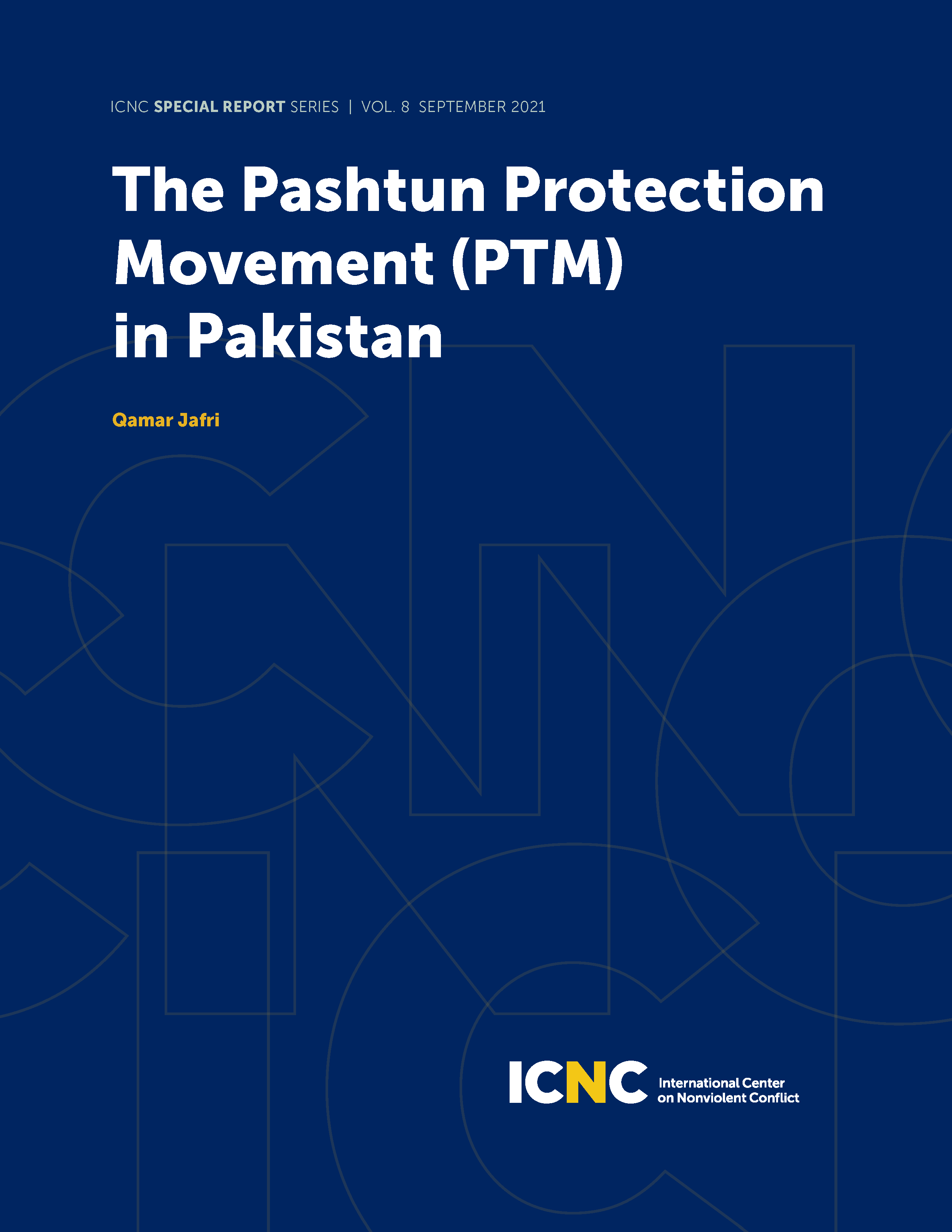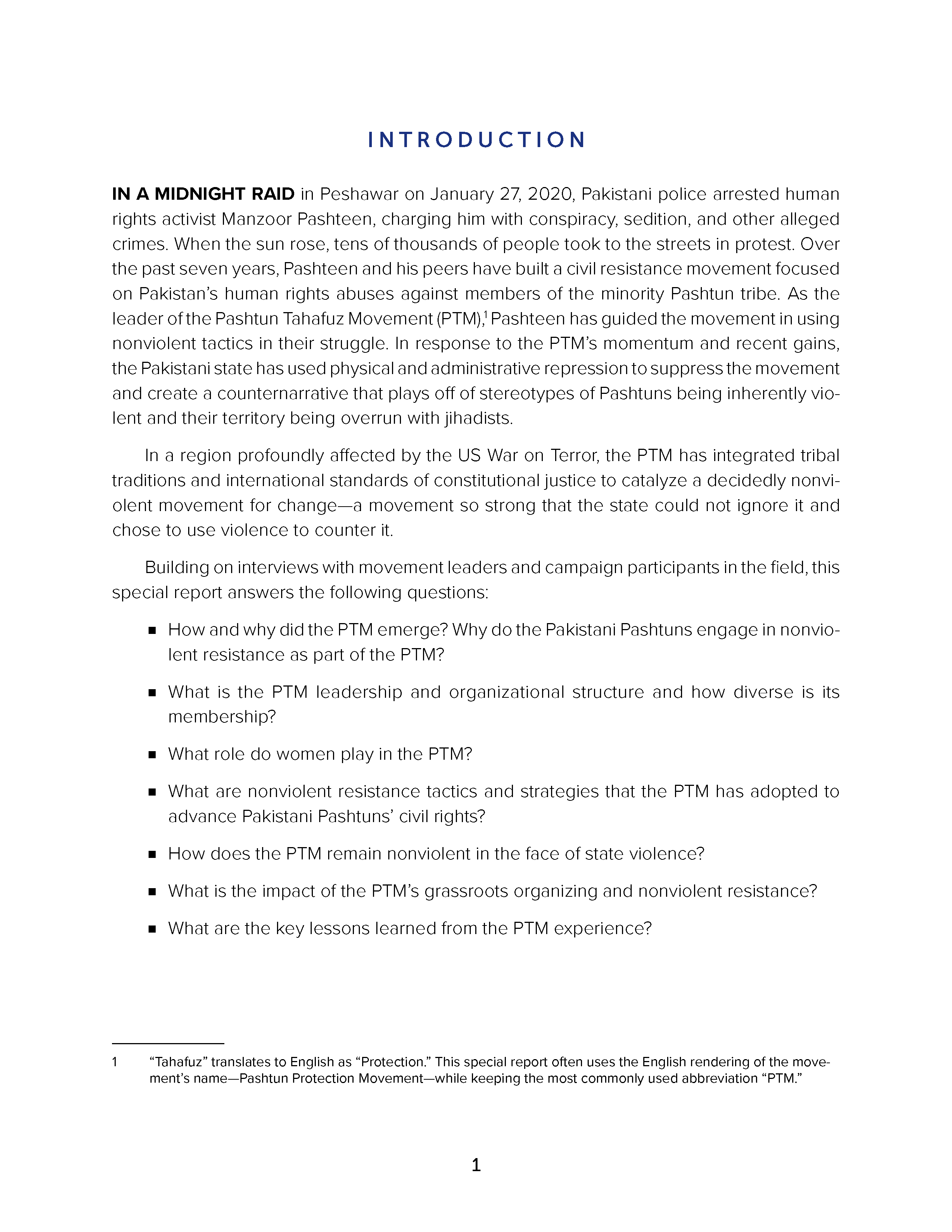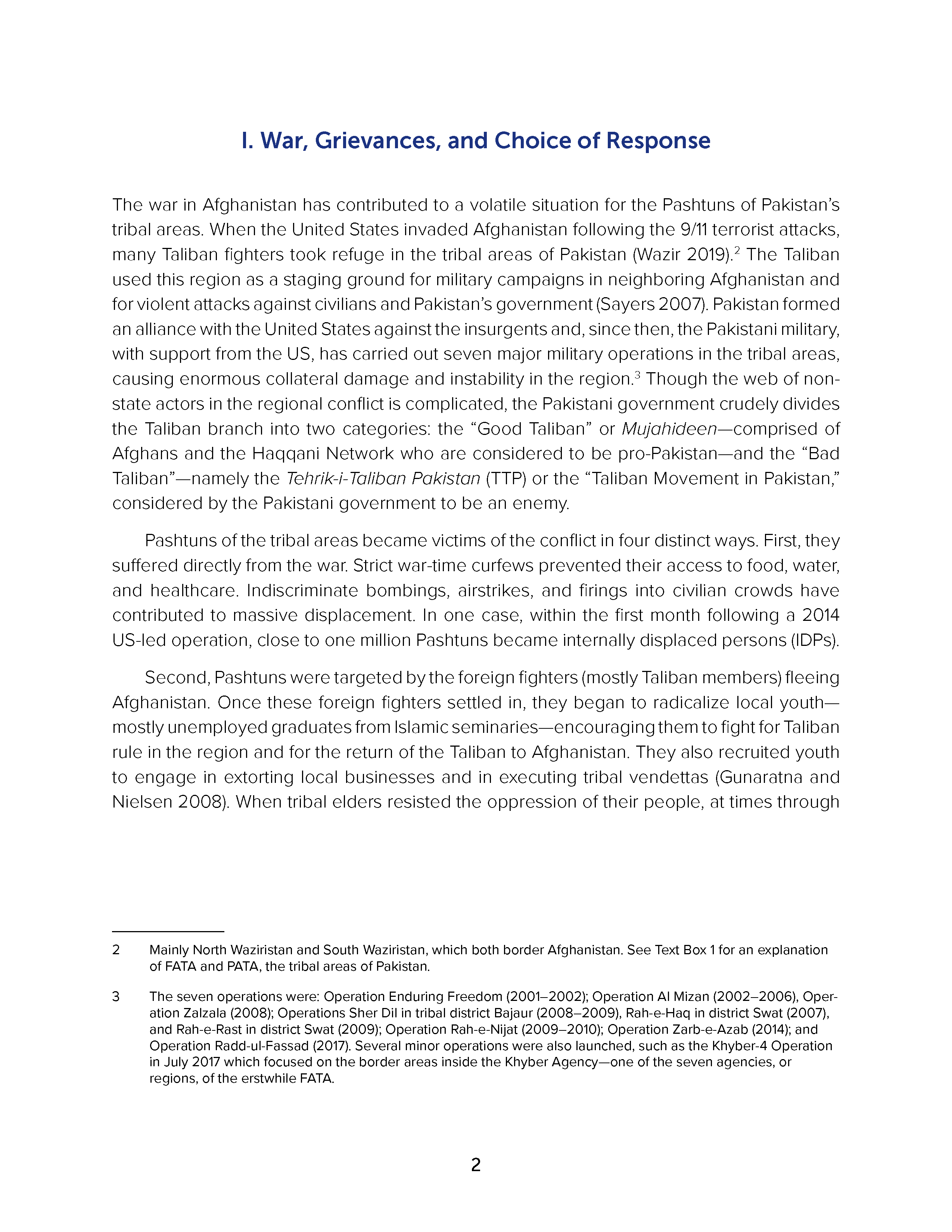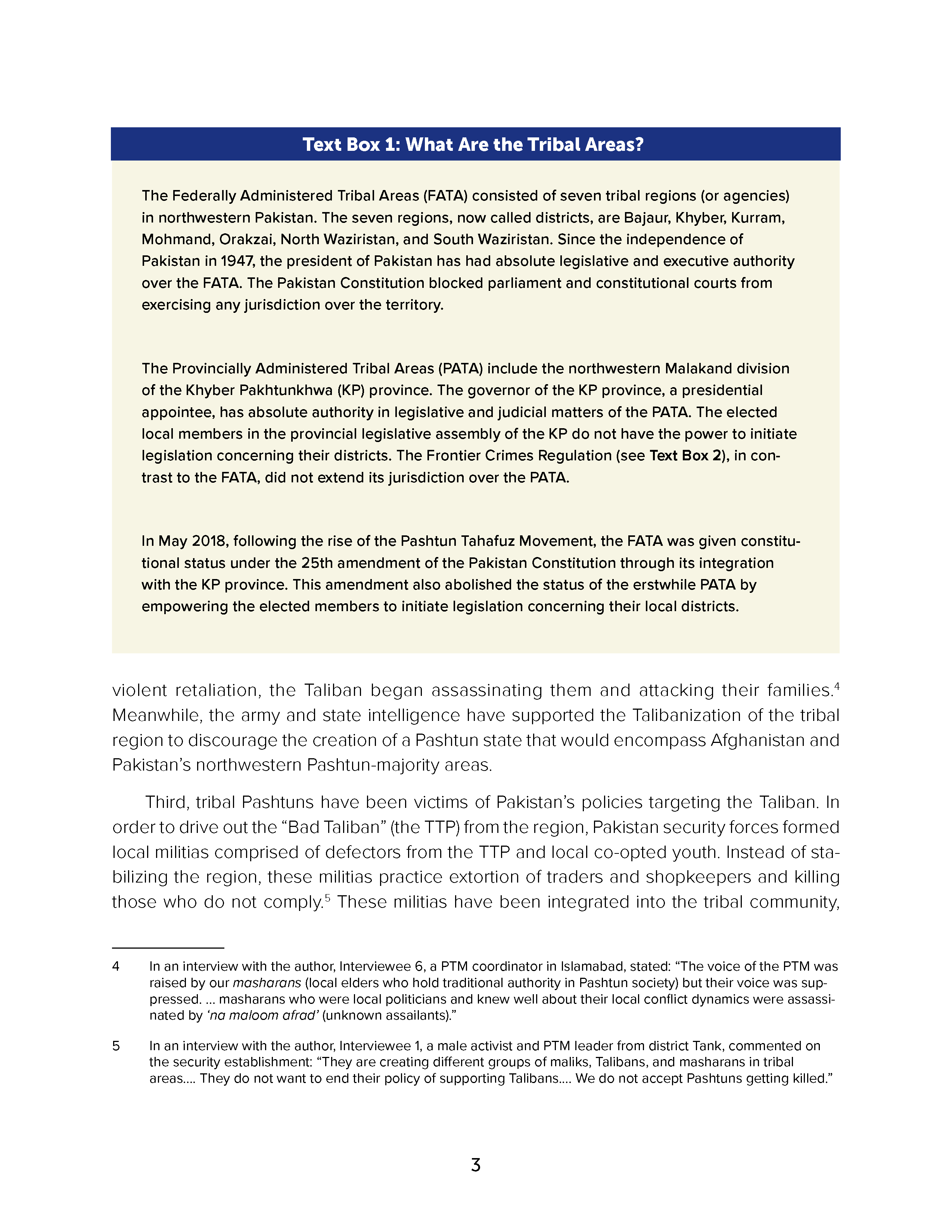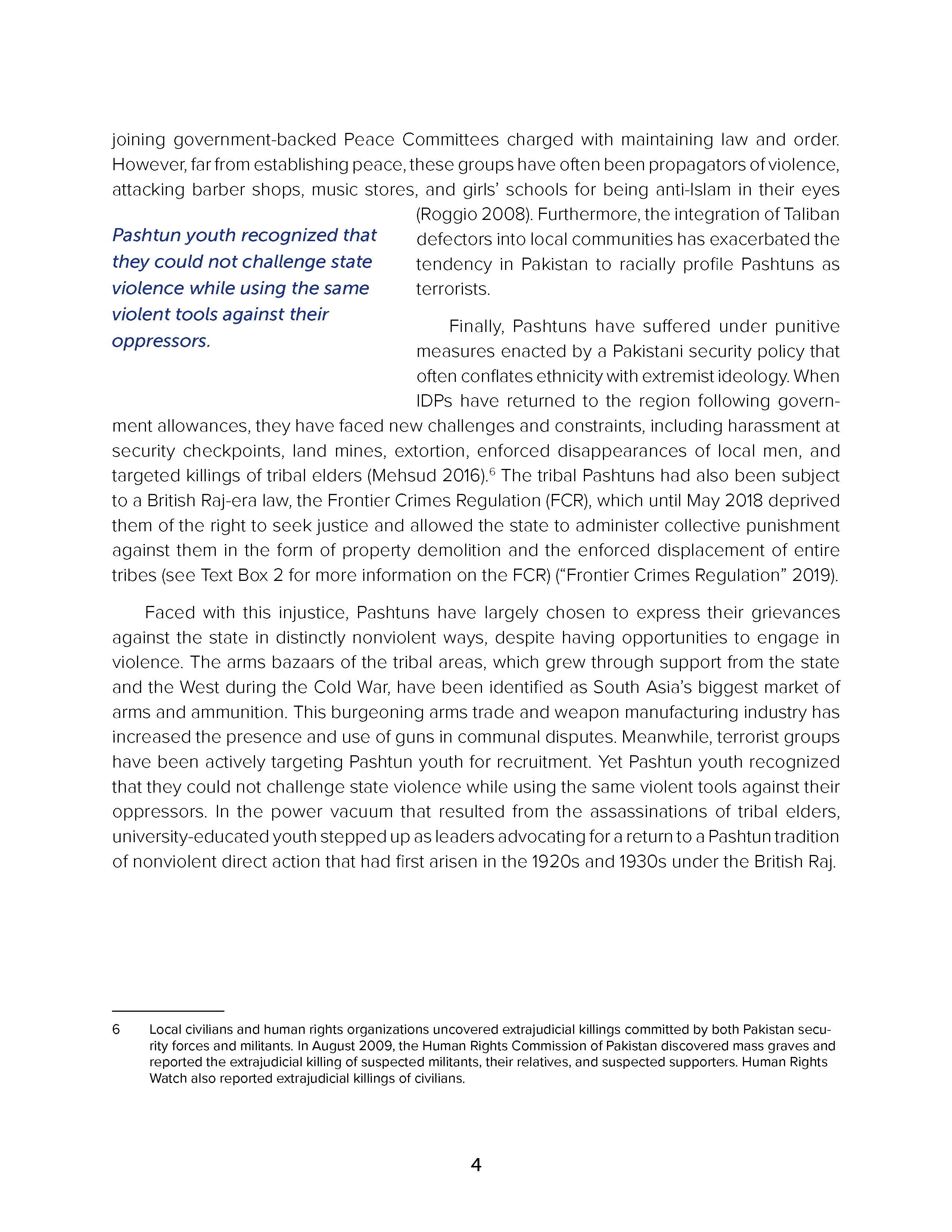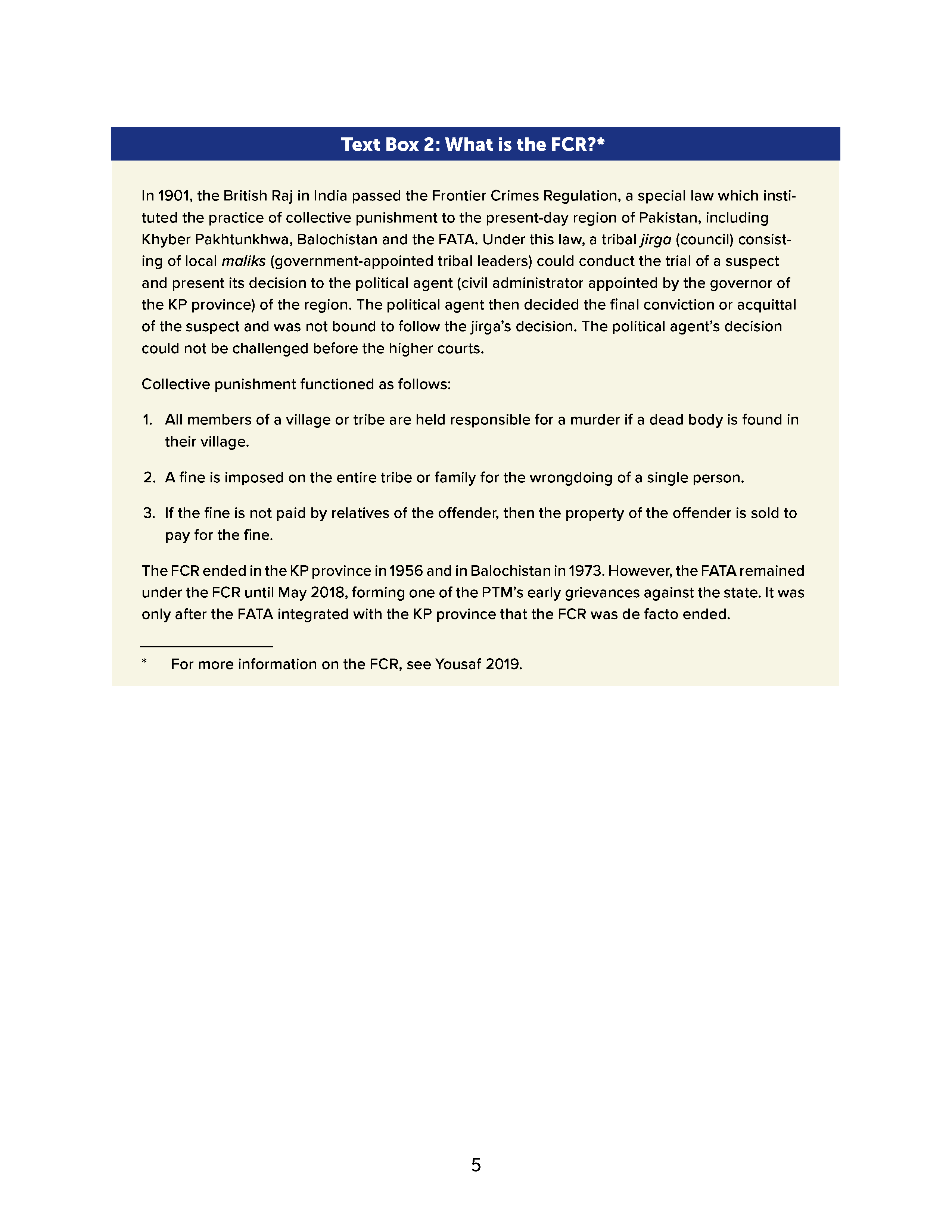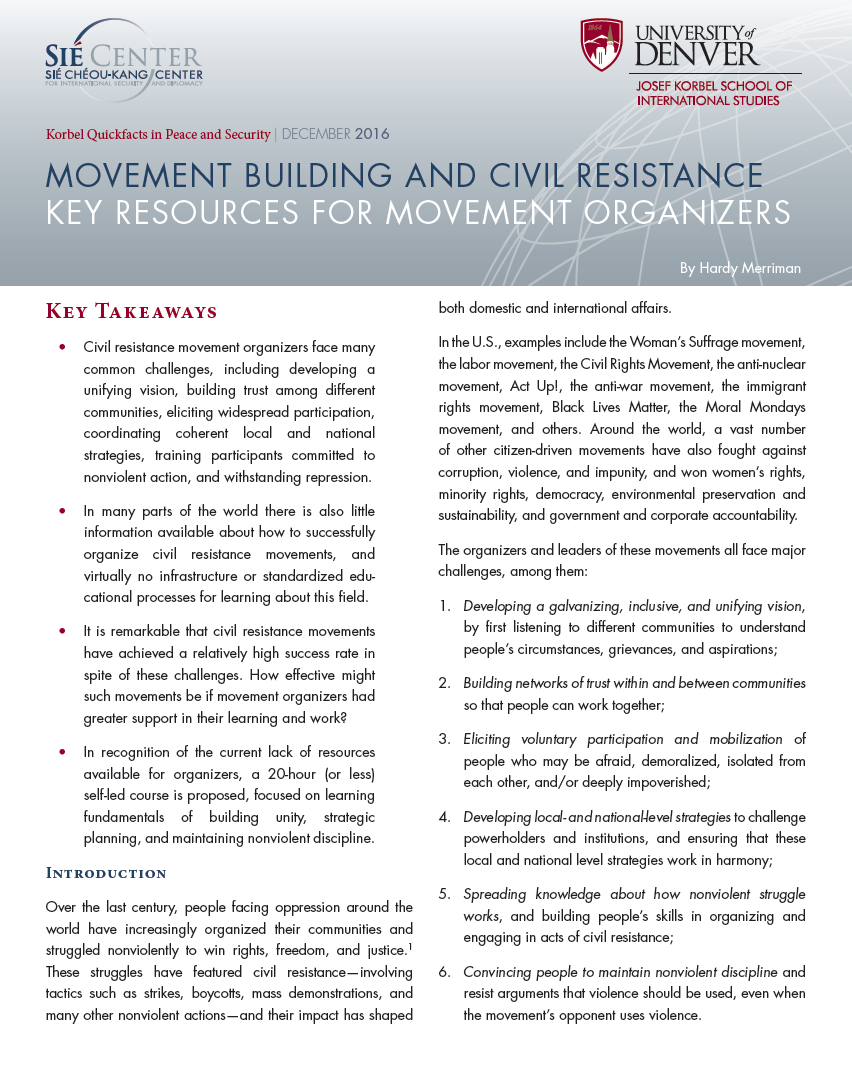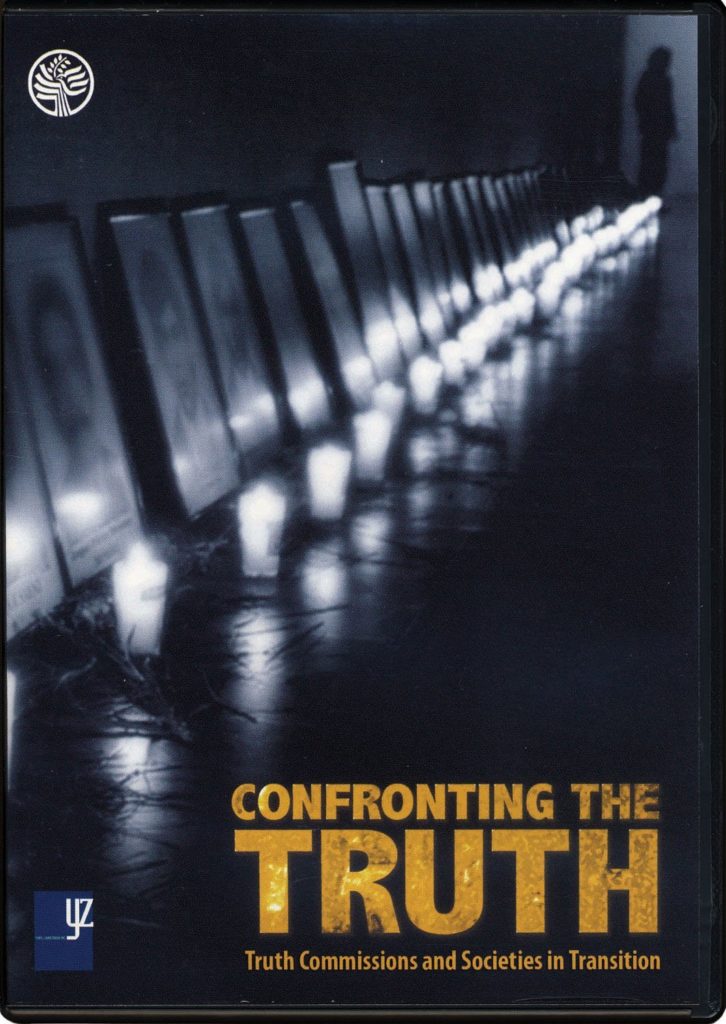The Pashtun Protection Movement (PTM) in Pakistan
Building on interviews with movement leaders and campaign participants in the field, this special report answers the following questions:
■ How and why did the PTM emerge? Why do the Pakistani Pashtuns engage in nonviolent resistance as part of the PTM?
■ What is the PTM leadership and organizational structure and how diverse is its membership?
■ What role do women play in the PTM?
■ What are nonviolent resistance tactics and strategies that the PTM has adopted to advance Pakistani Pashtuns’ civil rights?
■ How does the PTM remain nonviolent in the face of state violence?
■ What is the impact of the PTM’s grassroots organizing and nonviolent resistance?
■ What are the key lessons learned from the PTM experience?
ICNC Special Report Series
Published September 2021
